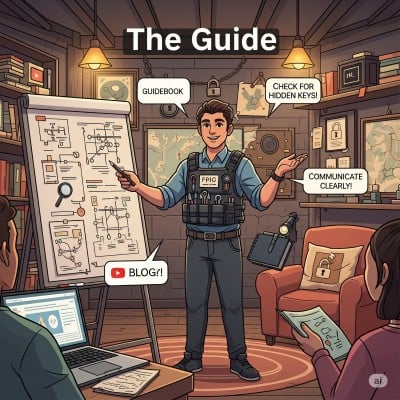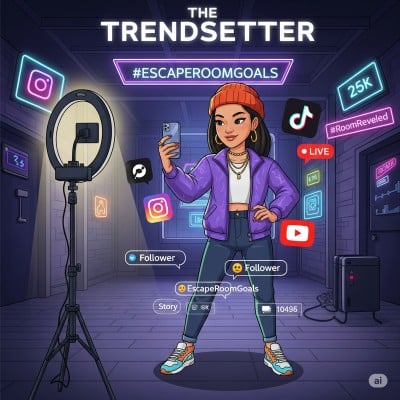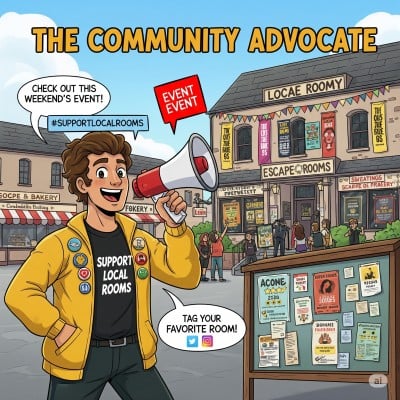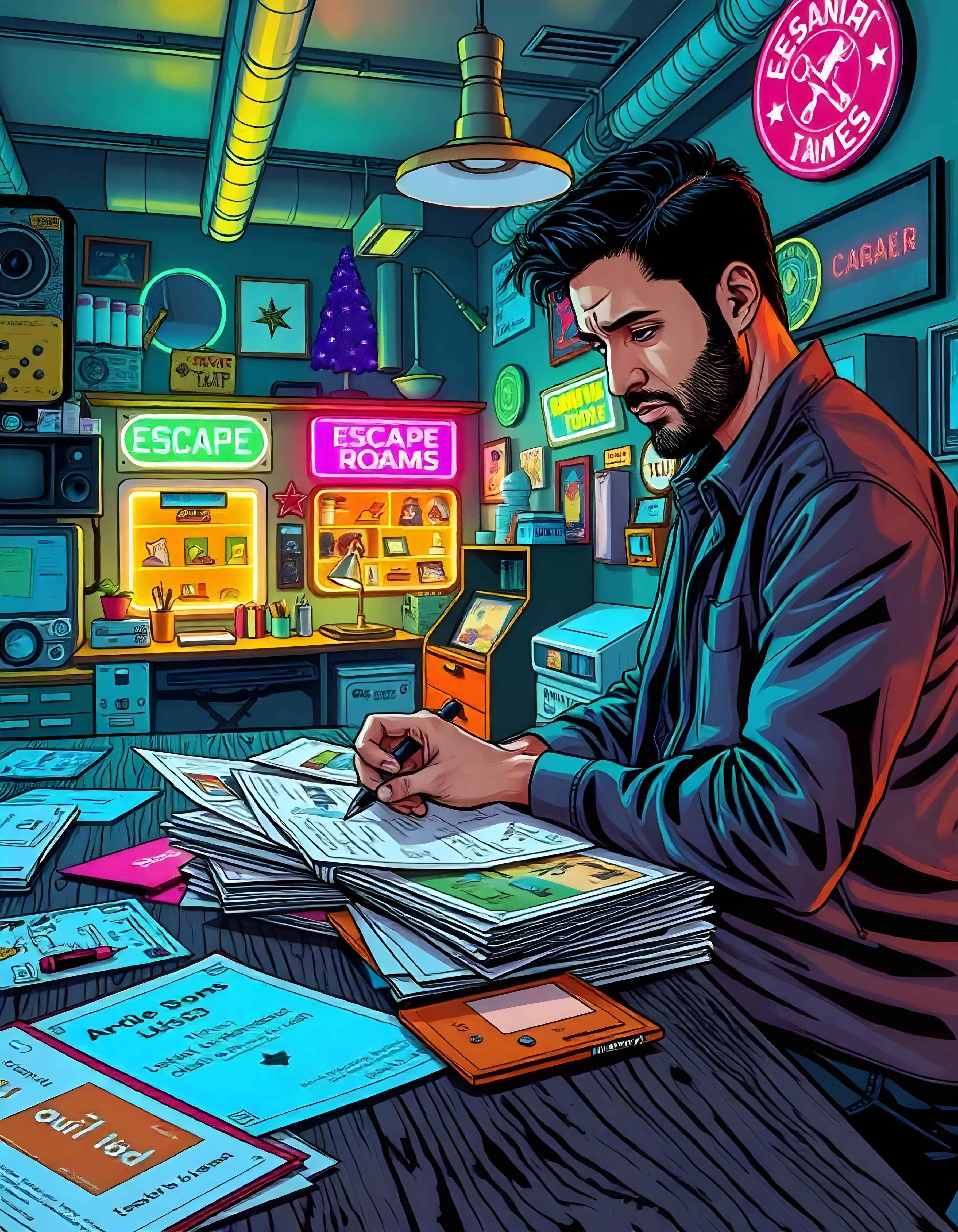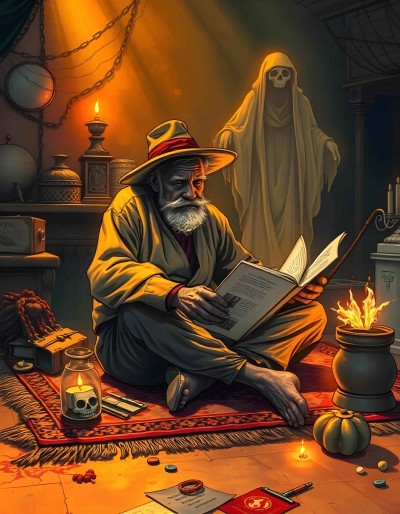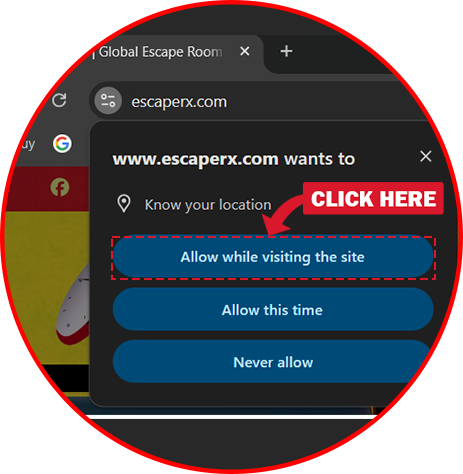The Guide plays a pivotal role in the escape room ecosystem, standing at the crossroads between challenge and enjoyment 🧩 🎭. Escape rooms are, by design, meant to be difficult. They push players to think creatively, communicate effectively, and solve puzzles under pressure. Yet they are also meant to be fun an adventure that leaves players exhilarated rather than exhausted. The Guide ensures this delicate balance is achieved. By offering tips, strategies, and resources, Guides transform potentially overwhelming experiences into rewarding journeys where learning, teamwork, and joy take center stage 📈 🎉.
The essence of the Guide lies in their ability to empower players. They are not there to hand out answers or diminish the thrill of discovery. Instead, they act as mentors, offering just enough direction to help participants stay engaged and confident 🤝 🔍. For nervous first-timers, the Guide’s reassurance can mean the difference between feeling intimidated and feeling inspired. For veteran players, Guides provide strategies that refine skills, deepen understanding, and encourage exploration of new challenges. In every case, they adjust their support to match the needs of the players, ensuring that everyone has the opportunity to shine. 👥 🎉
One of the most important contributions of the Guide is accessibility. Escape rooms, while entertaining, can sometimes feel daunting to newcomers. The unfamiliar mechanics, the ticking clock, and the pressure to perform as a team can create stress rather than excitement. Guides bridge this gap by demystifying the experience. They explain common puzzle types, offer 🧩 💡 practical advice on teamwork, and remind players that escape rooms are not about perfection but participation. By lowering the barrier to entry, Guides invite more people into the community, expanding its reach and ensuring that escape rooms remain welcoming rather than exclusive 👥 🎉.
For experienced players, the Guide takes on another role: that of strategist. Enthusiasts who have played dozens of rooms may already understand the basics, but they often seek ways to sharpen their skills ⏳ 🔐. Guides provide insight into advanced strategies, such as effective delegation, pattern recognition, and communication under pressure. They highlight common mistakes and offer alternatives that maximize efficiency without sacrificing fun. This kind of mentorship keeps seasoned players challenged and engaged, ensuring that even those familiar with escape rooms continue to grow. 🔓
The Guide’s influence also extends into community building. Many Guides share their knowledge through blogs, podcasts, workshops, or social media groups 📖. These platforms become spaces where players exchange stories, advice, and encouragement 🧩. By freely offering guidance, Guides foster a culture of collaboration rather than competition. They remind players that while the clock may create a sense of urgency, escape rooms are not about outsmarting others they are about working together to overcome challenges. This ethos strengthens the bonds among players, transforming a solitary experience into a shared passion 🌍 🎉.
In addition to supporting players, Guides indirectly benefit creators as well. A well-informed community is more likely to enjoy and appreciate the 💬 experiences designed for them. When players understand how to approach puzzles, communicate effectively, and manage their time, they are less likely to leave rooms feeling frustrated or confused. This positive engagement reflects back on escape room businesses, enhancing reputations and 🤝 🧠 encouraging repeat visits. In this way, Guides serve as silent partners to designers, ensuring that their work is experienced in the best possible light.
The Guide also embodies adaptability. 🌈 👥 No two teams are alike; some rely on logical thinkers, others on creative minds, and still others on effective leaders. Guides recognize these differences and tailor their advice accordingly. They encourage players to embrace their strengths while also learning from their weaknesses 🎭 📣. This adaptability ensures that every player, regardless of experience or skill level, feels both supported and challenged 🧩 🚀.

